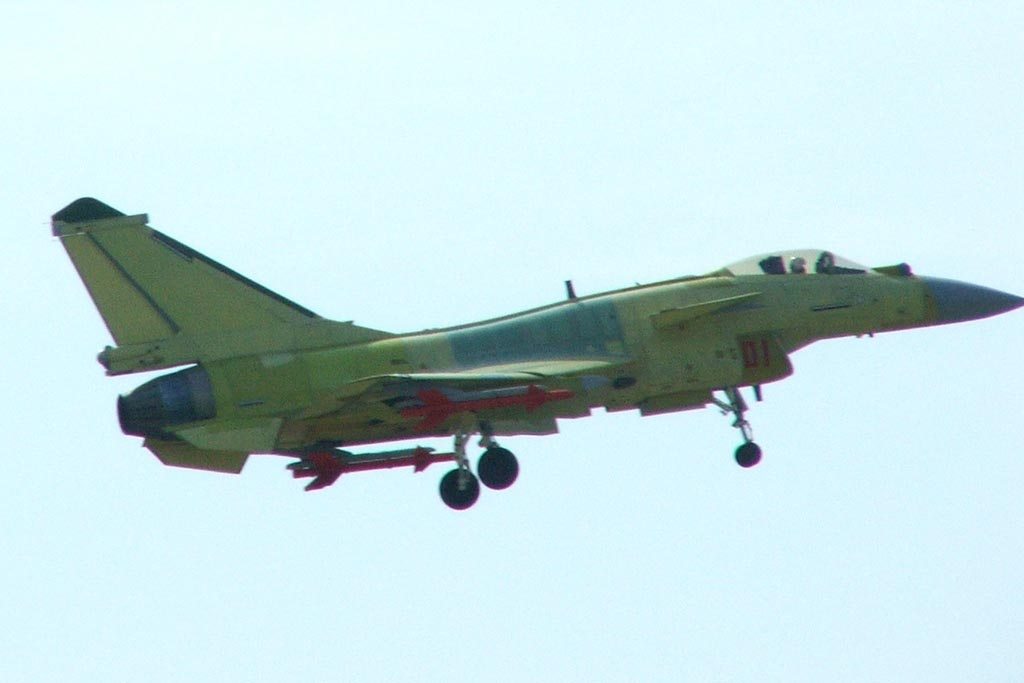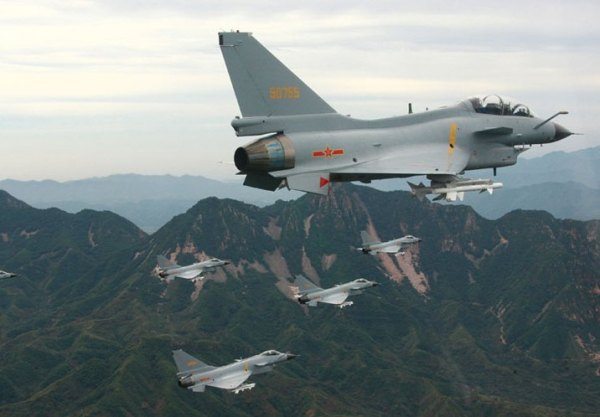On Nov. 25, 2012, China’s carrier-borne J-15 fighter jet has successfully undergone a series of sailing and technological tests on the Liaoning, China’s first aircraft carrier, marking a great success of the carrier-borne fighter jet independently developed by China and a major breakthrough in the development of aircraft carrier technology.
The J-15 is equipped with two high-power engines and a brand-new system of high lift device, takeoff and landing device and arrester hook. Its wing can be folded up to both maintain the excellent combat capability and meet the special requirement of landing on the Liaoning. Featuring large combat radius, excellent maneuvering performance and high bombs carrying capacity, the J-15 has a fighting capability of full sea and full airspace.
Foreign media especially Russian media guessed that the J-15 is a copy of Russian Su-33 carrier-borne fighter jet because its appearance is similar to Su-33. In this regard, spokesman of the Ministry of National Defense of China Geng Yansheng said on Nov. 29, “The world military affairs have an objective law of development. Many weapons have the same design principle and some command and protection methods are also similar. Therefore, it at least is non-professional to conclude that China copied the aircraft carrier technology of other countries only by simply comparison.”
First, J-15 has an avionics more advanced than Su-33. Su-33 is equipped with old-fashioned ARINC429 discrete avionics system of one-way low-speed data bus, while J-15 adopts joint avionics system of bidirectional data bus.
TS-100, the Su-33’s fire-control computer, has a computing speed of only 170,000 times per second, while the J-15’s fire-control computer has an estimated computing speed of over several million times per second.
The J-15 owns a much more advanced radar system than the Su-33. Due to its backward avionics system, the Su-33 can only serve as interceptors, and is incapable of air-to-ground precision strike.
The J-15 adopts improved materials and production techniques, and thus has greater strength and lighter weight.
Finally, the J-15 is powered by home-made Taihang (WS-10) turbofan engine, which is more powerful than the Su-33’s engine. Overall, the J-15 is superior to the Su-33, and is comparable to world-class carrier-based aircraft such as the United States’ F-18 and France’s Rafale.











